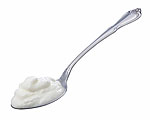 In part three of this series on probiotics, I take a quick foray into one of the most predominant infections in society. It’s “H. pylori”…and can our friendly bacteria wage battle with it?
In part three of this series on probiotics, I take a quick foray into one of the most predominant infections in society. It’s “H. pylori”…and can our friendly bacteria wage battle with it?
“H. pylori” are not-so-friendly bacteria responsible for many diseases, including gastritis, ulcers, and gastric cancer. In several high-quality studies, probiotics have proved to be a very positive treatment method. In one study of 60 people infected with “H. pylori,” the probiotic “Lactobacillus” significantly reduced diarrhea, nausea, and taste disturbance. They took it for two weeks.
Another study, with 120 “H. pylori”-positive patients, compared a standard therapy of three drugs with placebo and that same therapy with the probiotic “Bacillus clausii.” In the probiotics group, participants had a significant reduction in nausea, diarrhea, and stomach pain. Two years ago, 86 pylori-positive children received that same therapy along with milk containing probiotics, or the therapy with placebo. Those with the probiotics had far better eradication of the bacteria.
Last year, 138 patients sensitive to antibiotics went through a similar study. This time, those taking eating yogurt (a food very high in probiotics) along with the therapy had a greater rate of destroying the “H. pylori.” And, finally, a recent review arrived at the following conclusions:
— “Lactobacillus” and “Bifidobacterium” can stop “H. pylori” from growing, and decrease inflammation in the intestinal tract to help heal ulcers.
— Probiotics don’t entirely kill off “H. pylori,” but do keep levels of these bacteria low in the stomach.
— Probiotics, in combination with the standard anti-“H. pylori” therapy, can help kill off more bacteria and lower adverse effects due to the drugs.
— Berry juice and some milk proteins have similar beneficial effects and offer an inexpensive way alternative way for people at risk for “H. pylori” infections to stay safe.
Read the first two parts of this series here:
The Power of Probiotics
Your Best Defense Against the “D” Word
